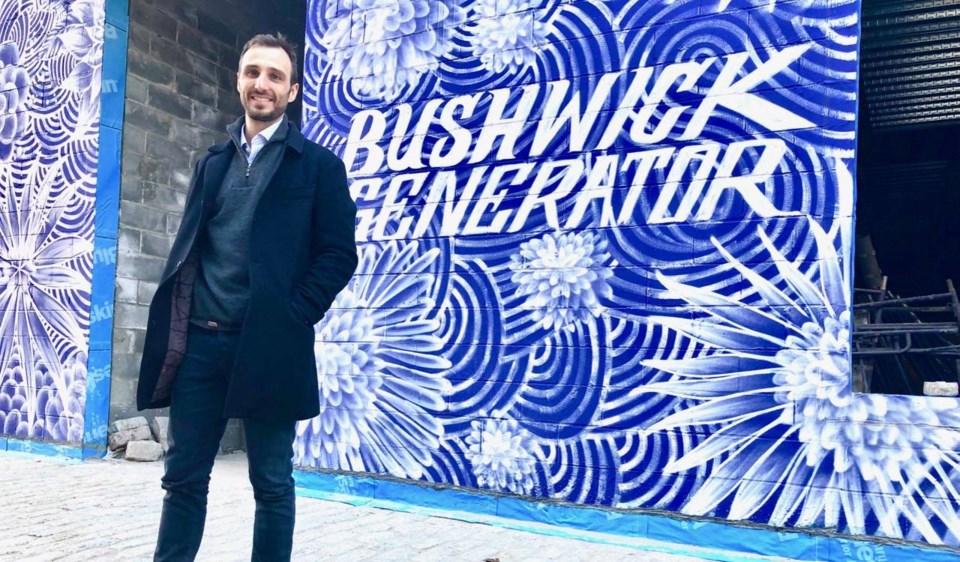What would you ask for in an ideal world? Your answer, I'm guessing, would depend entirely upon what in the world you're looking for: For the sick and infirm, it might be excellent health; for the single person, an ideal spouse; or for someone like my husband, for example, the answer might be watching a single episode of Game of Thrones without his wife asking a hundred questions the entire way through.
Well for Bushwick resident and entrepreneur Emerick Patterson, an ideal world is a decentralized world-- a world without a middleman, where communities operate through public consensus; where they can monetize their behavior based upon an agreed upon value, and where that value is earned by way of reputation. It's a next-level society where, instead of the middleman charging top dollar for access to its assets, information or services, everyday people instruct the business model in a way that fully serves their own needs.
It's a radical idea. But we've seen glimpses of it already in the share economy, with the enormous success of businesses such as Uber, Fon, Airbnb and TaskRabbit.
Patterson is applying the same concept of decentralization to hyperlocal economies, and he's banking on that same level of success. In early 2018, Patterson opened The Bushwick Generator, located on Moore and Bogart streets in Bushwick.
The Bushwick Generator is an ideas lab and incubator for urban tech, including AR, VR and gaming. Their vision is stated as: "Changing the future by creating new ways of integrating technology into neighborhoods; rewarding contributions to community; and doing business with space-time markets."
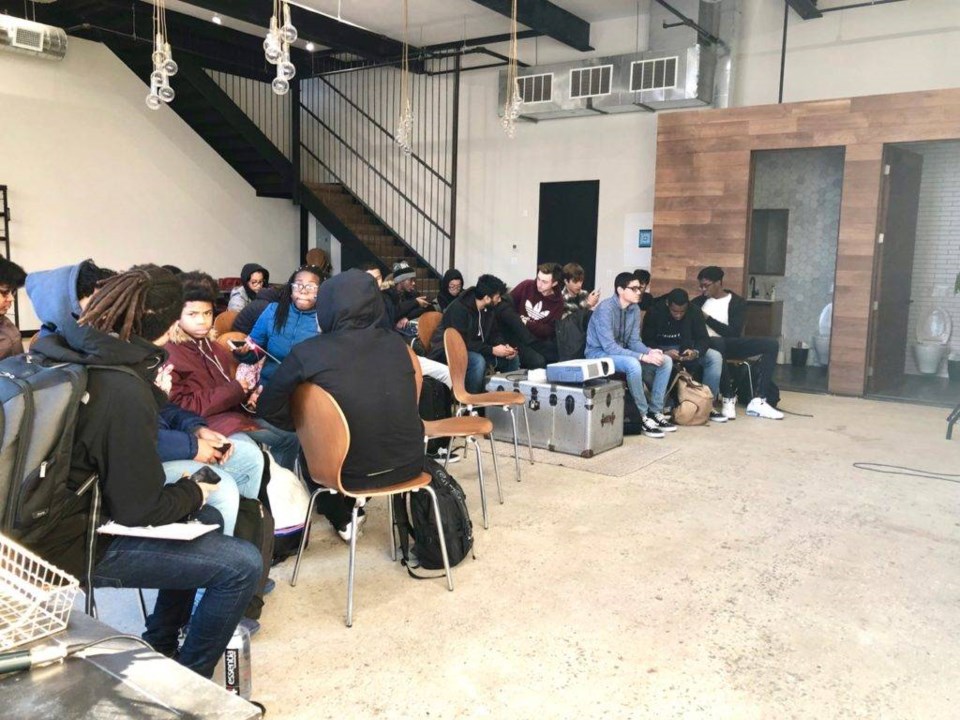
This new vision is pushed forward, primarily, through blockchain technology. For reference, a blockchain is a digital ledger of economic transactions that can be programmed to record virtually everything of value without the use of a middleman and in a way that is fixed and can only be amended by adding another block to the chain. It is a new layer to the internet that is revolutionizing how we secure contracts and has spawned hundreds of new cryptocurrencies, most notably, Bitcoin.
Since its opening the Bushwick Generator has been a lively, active meeting space for dozens of blockchain hackathons, youth workshops, ag-tech conferences, parties and performances, basically conforming to the immediate needs of the urban tech community.
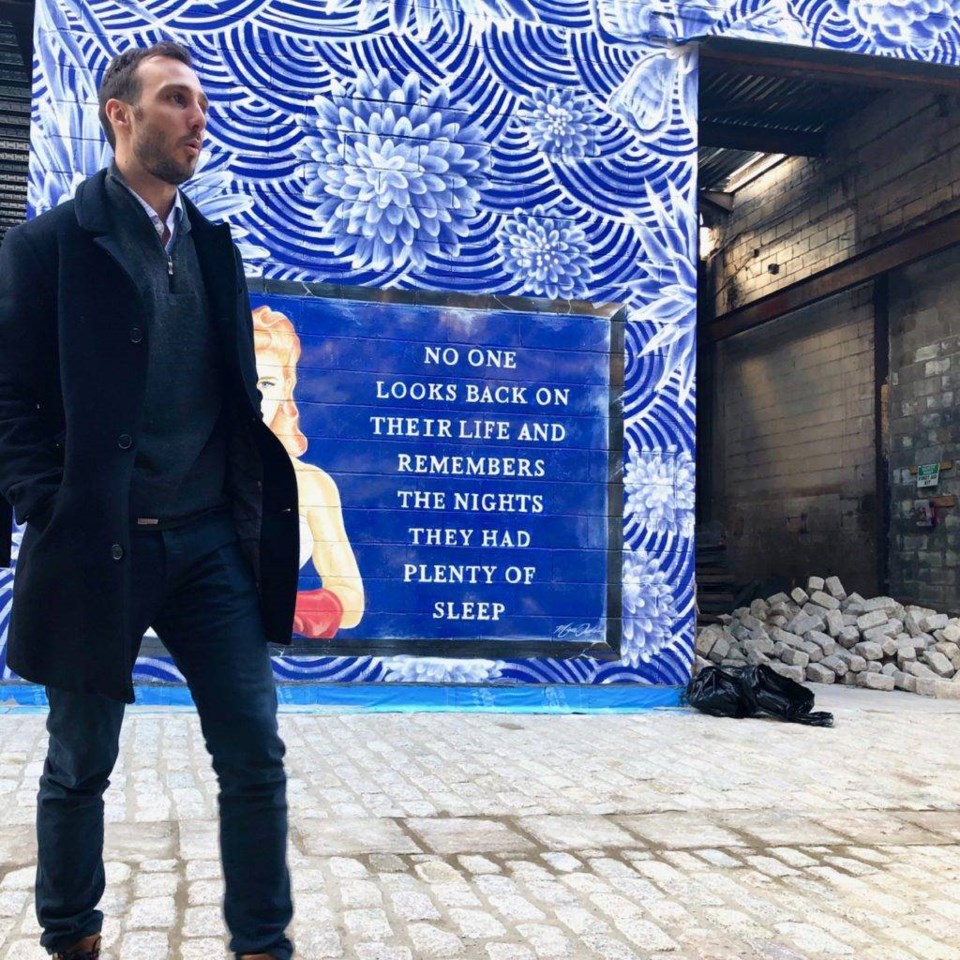
"We're talking about the decentralization of a private piece of property, figuring out how the public can convene in a private space when there's no standard for that," Patterson explains. There's genuine passion and urgency behind his words.
"It's an ideal. We're dealing with a situation where there's tons of value to quantify in a single community... several different ways to make the neighborhood better and more equitable for everyone."
The Bushwick Generator strives to be an open source building whereby its governance, administration and valuation are decided upon by all who care to participate-- a society that mirrors in many ways how blockchains are formed and how cryptocurrency is exchanged.
While the Bushwick Generator currently is open for business, a good three quarters of the building is still under construction, with a summer 2019 scheduled date of completion. Once finished, the complex will transform into a crypto-savvy playground engaging with the community in three ways: 1. As an office space and a food court; 2. As a 10-story hotel and courtyard; and 3. As a community event space (the portion that is open currently).
From the second floor back office space, you can throw a rock and almost hit Consensys, the leading blockchain development agency in the country. The two business live as kissing cousins, steadily and quietly planning the biggest disruption in tech probably this century.
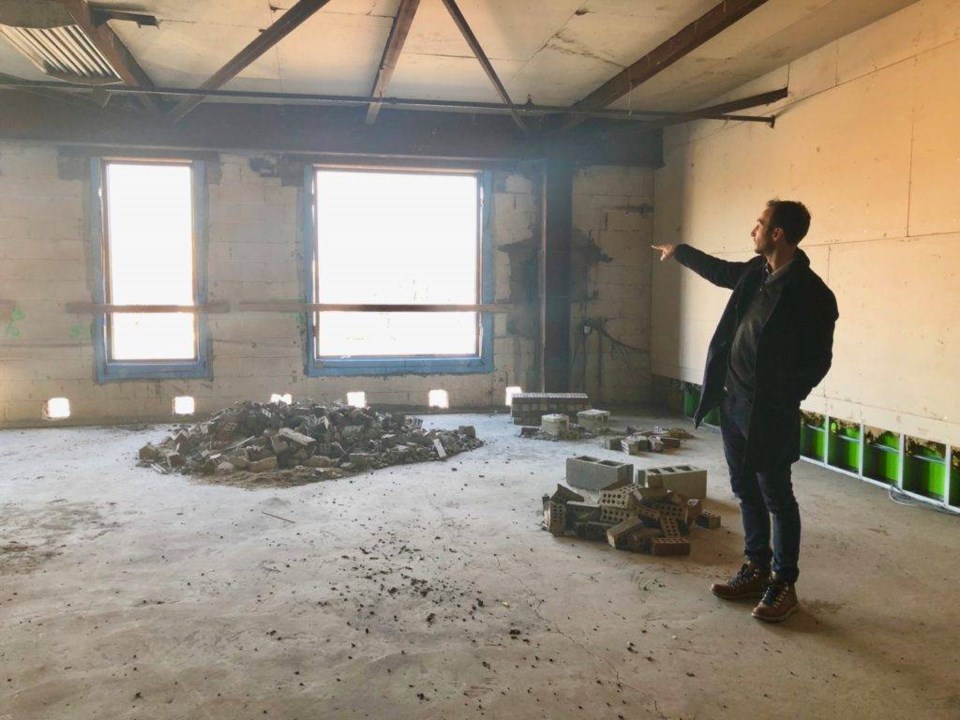
"So envision: What if you could vote on the vendors? Or see the supply chain when you order food?" says Patterson. "Or tokenize a table and have someone water a plant to sit down. It's not only cool, but it's a mechanism method, like when you give people a chance to see what is going on in a blockchain. So it will also be a chance to educate people."
Bushwick Generator submitted a funding proposal, "The Decentralized Smart Neighborhood," in early 2018 to the NYC Economic Development Corporation. The proposal lays out a plan on how to leverage technology and retrofit a neighborhood where the community weighs in on its use and direction."
Almost a year later, and Bushwick Generator is still waiting to hear back from EDC. What's been challenging for Patterson and the thousands of others planning for decentralized autonomous societies is getting people to see the "ideal" as more than an just an idea.
"It's been hard to get developers and even people to look at urban as the optimal use case for what we're trying to do here," he says. "We have an opportunity to give people the chance to vote, to build reputation in an ecosystem that is not relying on the current status quo, to get them more than a city job."
What a wonderfully powerful ideal toward social justice for the community at large! However, this is Brooklyn: Many communities coexist within one space. Is the intended community the actual community? Is the actual community the longtime residents living in NYCHA's Bushwick Houses five blocks away? Or is the actual community the techies, college students and hackers who have studied and understand blockchain?
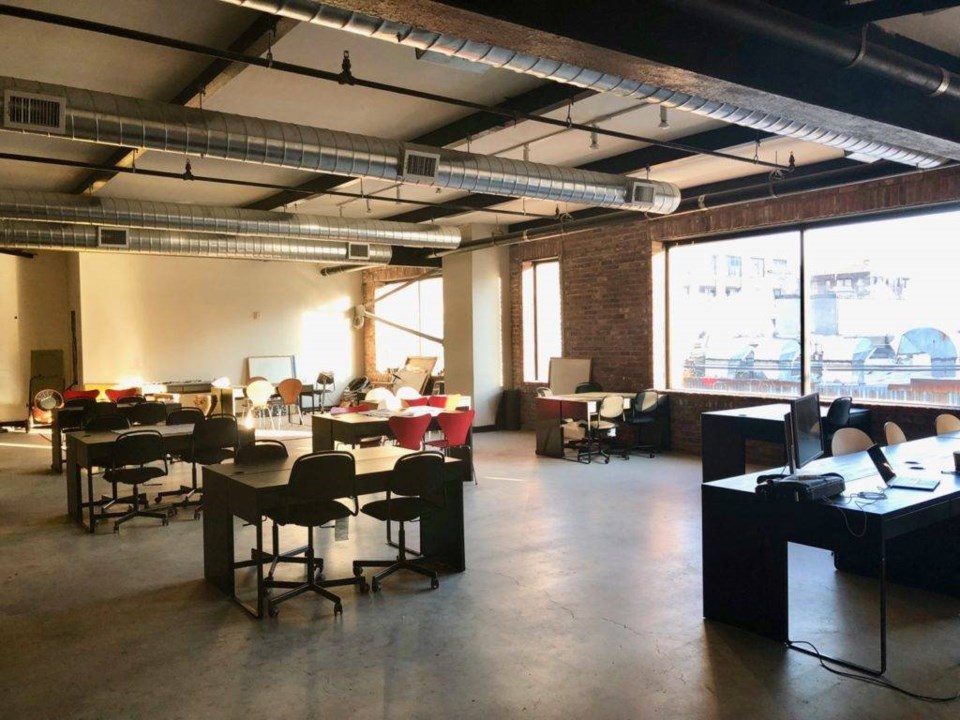
Either way, at best, Patterson is right: After all, we've already seen the success of a decentralized share economy take root in an exploding number of new businesses.
Decentralized hyperlocal communal structures, however, haven't quite caught on the same way-- the biggest difference being, you can catch an Uber without having to really understand how the technology behind it works.
Perhaps, like blockchain and cryptocurrencies, too many people still view the longterm success of decentralized communities as still speculative. That's not to say decentralization is not the future of urban. But perhaps, because their success requires far more consensus and far more understanding, far more time is needed.

